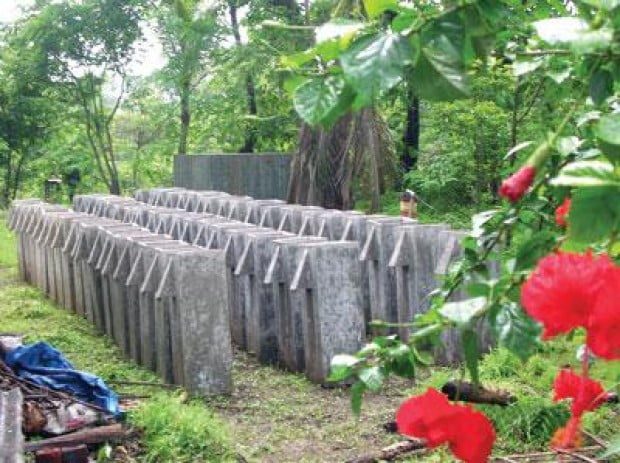
Low-cost water filters supplied by a Malibu-based nonprofit are improving health and saving lives in an impoverished area of India.
By Ed Kamen / Special to The Malibu Times
Americans take it for granted. Turn on a tap and out it pours—clean, fresh, delicious. Water.
But in India, and in many other parts of the world, it’s not that simple. Only 28 percent of Indians have access to proper sanitation. To Lee Schwing, in a land as culturally rich and spiritual as India, it is an intolerable situation.
“I have a very special feeling for India,” Schwing said. “I’ve been going there every year for 10 years.”
Through her association with the Hard Light Center of Awakening, an organization established as a forum for the study of spirituality and meditation, Malibu resident Schwing found a way to give back to the country she loves.
Hard Light established Third Millennium Awakening (TMA), a Malibu-based, nonprofit corporation founded in 2005 to help impoverished villagers of the Thane District of India achieve a better way of life.
“In 2005, we went on a scouting mission to determine what kind of charitable work made sense. Something sustaining and meaningful to the area I was interested in,” she said. That area was the Thane District, including the village of Nimboli.
“What was sorely lacking was access to clean water,” she said. Villagers were drawing water from the contaminated wells and the nearby river—the same river used by the animals. Everything went into that water. But that was all they had.
So in stepped the TMA. Using technology provided by a Canadian group called the Centre for Affordable Water and Sanitation Technology, the organization began making water filters that would change the lives of the villagers forever. Scwhing, who is a technology consultant, said the first step was determining what kind of technology could be brought in from surrounding areas.
The answer came in the form of local sand and gravel, a shockingly low-tech solution to a high-priority problem. “It’s a beautiful design,” said Schwing of what she and her colleagues call the “biosand water filter.”
The filter is simply a concrete container, enclosing layers of sand and gravel that trap and eliminate sediments, pathogens and other impurities from the water. According to the TMA, researchers at the University of North Carolina at Chapel Hill have shown that the biosand filter can reduce the incidence of diarrhea by up to 40 percent, which is no minor thing: Diarrhea causes more than 1,000 deaths every day in India.
With the help of many local people who took part in the project’s training program, Schwing was quickly able to set up a small factory to build the filters. They were inexpensive to make and install, easy to maintain and cost nothing to operate, yet they eliminated the harmful germs and bacteria found in the local water. The filters were quickly integrated into the village by 2010.
Today, more than 1,500 filters are in use in Nimboli and elsewhere, and with an average of 10 people per family, provide clean water for more than 15,000 people. And counting. In the Thane District, the number of incidents of sickness has plummeted since the introduction of the water filters.
The most important sign of the success of the project, Schwing said, was on the faces of the villagers.
“The mothers are just ecstatic,” Schwing said. “(They) are the ones who have to deal with the sick children.”
But in order to ensure maximum effectiveness for the filters, the next step for the villagers in Thane was a program of education. Diarrhea, often caused by unsafe drinking water, is the second leading cause of death among Indian children, and 21 percent of all communicable diseases in India are related to unsafe water. So in conjunction with the water purification program, TMA provided instruction on good hygiene and proper water storage. Basic things such as the importance of washing one’s hands have been stressed.
“The program has been very successful,” Schwing said.
As with the introduction of solar ovens to impoverished regions in the deserts of Africa, the use of inexpensive, low-tech water filters in India has the potential for major benefits for impoverished native populations. The filters, which cost about $25 to make, along with the cost of distribution and educational programs, still require a financial commitment however. The nonprofit TMA funds its efforts exclusively from fundraising and donations.
“All the money goes into the project,” Schwing said.
To know more about the program or to make a donation, visit www.tmaseva.org.
